Ricardo Poquiviqui - Missionary to the Indians
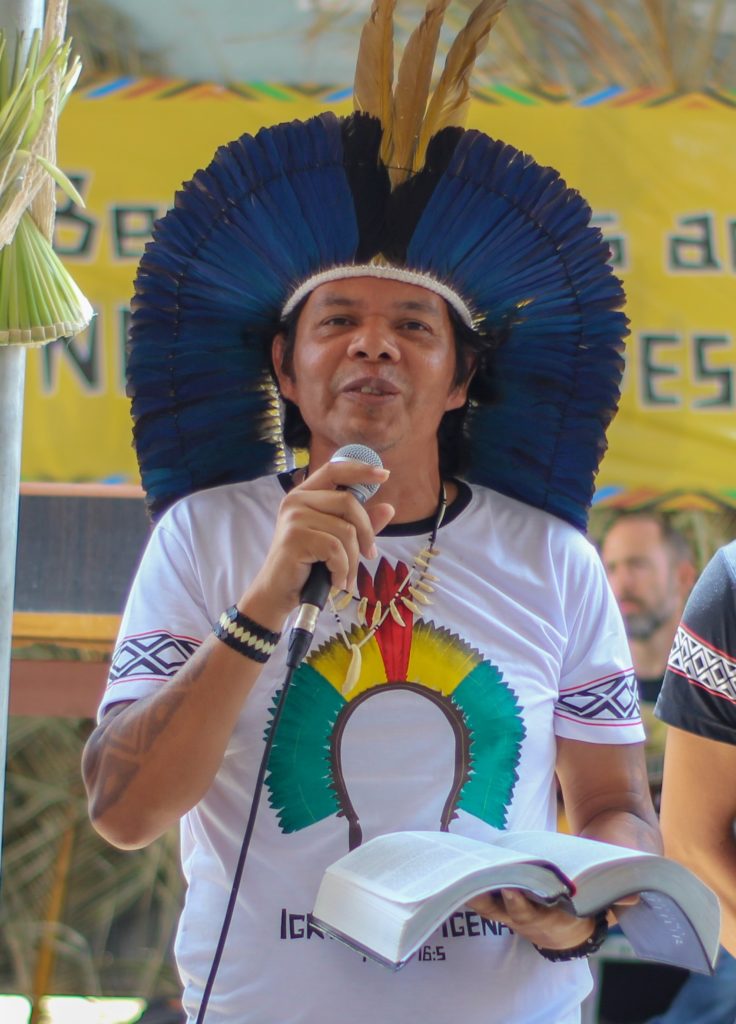
Ricardo Poquiviqui - Missionary to the Indigenous
My Calling
Ricardo – Missionary to the Indigenous – has a strong love for his people, the indigenous peoples of South America. This passion is especially strong for young people, for whom he has always held strong feelings. This feeling is not new, but has always been in Ricardo’s heart. God drives him because his people have little access to the gospel message. Thus, being an evangelist to his people is natural. Now, as an evangelist, missionary to the indigenous, and as a leader of other indigenous evangelical leaders, he can work to leverage his heart desire with gospel workers all across South America.
Why are the indigenous peoples a priority?
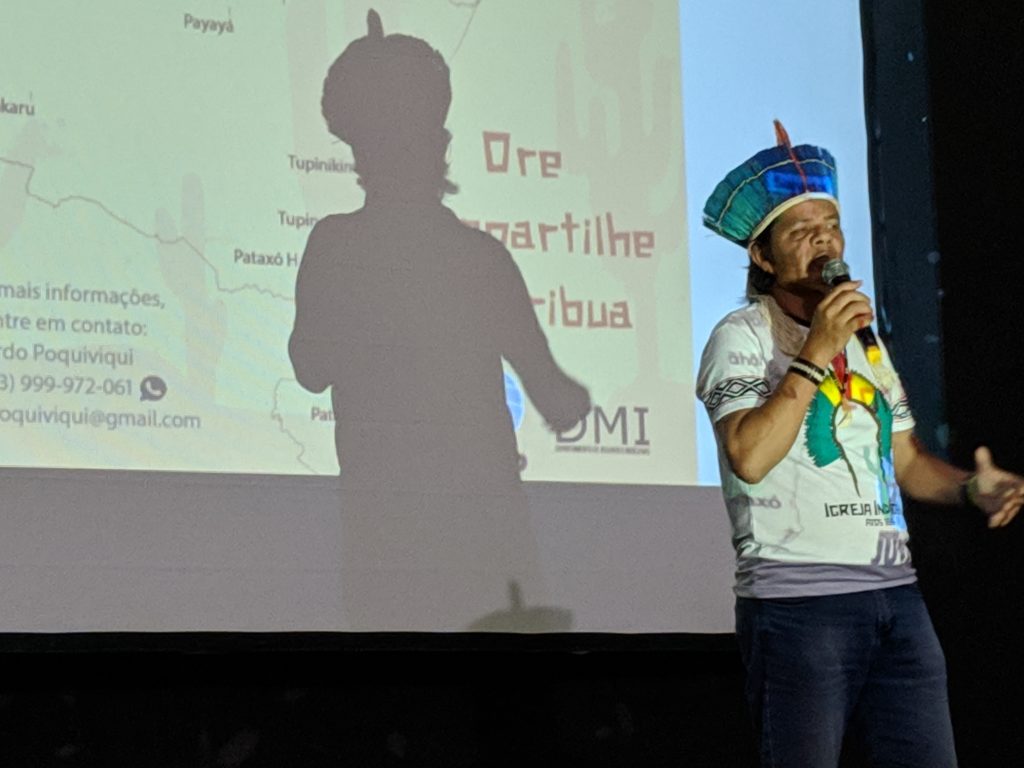
Indigenous Religious Tradition
The indigenous people’s religious tradition is animism. This means that god is everywhere and in everything. In the Northeast, there is a mixture of traditional animism, with African religions, spiritism, and a touch of Catholocism. This defines the culture and makes the tribes in the Northeast harder to reach. Traditional religion is a strong part of the culture and has a strong hold on the people. In Southern Brazil and in the Amazon region. religion and culture are separable, but in the Northeast, the religion is the culture. This makes evangelism especially hard.
Initial converts to Christianity in the indigenous Brazilian Northeast are often evicted from their community. This is clearly a strong message to others as to consequences of conversion.
Thus, evangelism to these Northeast peoples must go slowly. Anyone showing up as an evangelist is not welcome. But, after establishing a rapport and trust with the tribal leaders, evangelism becomes much more feasible. Therefore, it is hard and slow work for the missionary to the indigenous and the other evangelists spreading the good news.
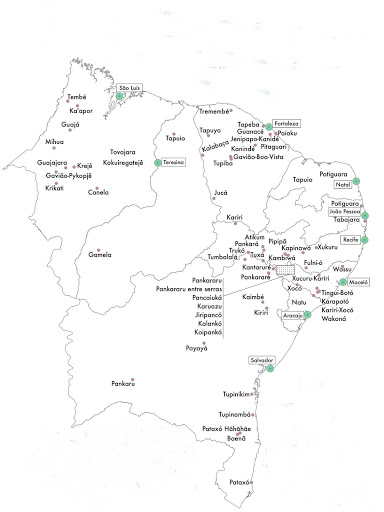
Ricardo Poquiviqui - My History
Ricardo’s father was born in Bolivia and his mother was indigenous from Brazil. His parents were Christians, so Ricardo was born into a Christian home in 1972. He was one of seven children in their home within an indigenous neighborhood of Campo Grande, Brazil. Campo Grande is capital of Mato Grosso do Sul, in an area inland and not too far from Bolivia and Paraguay.
His father pastored an indigenous church, so Ricardo knew the church from an early age. The church affiliated with a denomination roughly meaning “Union of Evangelical Churches to the Indigenos.” He accepted Jesus as his Lord and savior at age 12. Later in his youth, he served in the church in a variety of tasks, including youth leader and bible study leader.
This church maintained an indigenous language service, in addition to services in Portuguese. The songs and prayers were in the native language and the preaching was in Portuguese. About 70% of the church members were indigenous and the rest were local Brazilians who elected to fellowship with the church. One of those was Flavia, a Brazilian who resonated with Ricardo. They married in 1996. The Lord blessed them with one daughter, Renatinha. After being married, Ricardo accepted the role of deacon and served several years as a volunteer pastor.
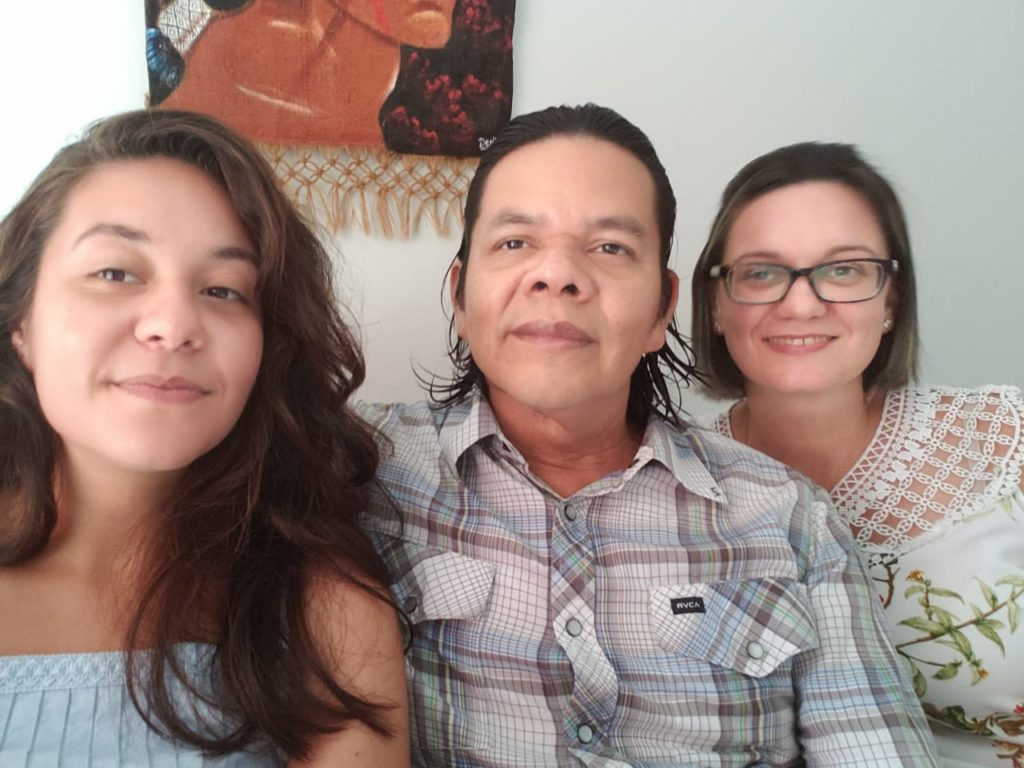
My Mission Preparation
Prior to marriage, Ricardo took a variety of jobs including computer graphic design and working in the accounting field. Then the Lord opened the door for Ricardo to attend seminary.
He undertook theological studies in a Baptist Seminary in Campo Grande graduating in 2011 with a Bachelors degree in theology and a focus on missions. He served for three years as a pastor in his church. In 2015, he became a full time missionary. Today, Ricardo is quite involved with the National Council of Pastors and Leaders of Indigenos Evangelicals (CONPLEI) and President of CONPLEI-JOVEN, the arm focused on youth. In these roles he is the Missionary to the Indigenous of South America.
Specific Ministerial Direction
I need to finish visiting all of the indigenous communities in the Northeast to understand more about the condition of the people.
I can take this information from field trips to share with churches and others for prayer and potential help. Many Brazilians have little awareness of the indigenous peoples and their needs for Jesus.
As leader of CONPLEI and head of CONPLEI Youth, he helps to focus the work of indigenous evangelical leaders all over South America.
My Passion - Missionary to the Indigenous
5 In your relationships with one another, have the same mindset as Christ Jesus:
6 Who, being in very nature God,
did not consider equality with God something to be used to his own advantage;
7 rather, he made himself nothing
by taking the very nature of a servant,
being made in human likeness.
8 And being found in appearance as a man,
he humbled himself
by becoming obedient to death—
even death on a cross!
Philippians 2:5-8 New International Version (NIV)
My special passion is the youth of the indigenous. There are many indigenous young people (under 30) who would very much like to be trained in seminary to help as a pastor or evangelist. Traditional denominations are reluctant to sponsor indigenous youth for seminary (perhaps others are “better prepared” or because the focus is other church needs). This leaves a huge gap.
It is my heart desire to empower these youth to be trained and sent to serve in God’s kingdom. The harvest is ripe and the prepared workers are few. We need to enable these Godly youth to accept the calling to buid God’s kingdom among the Brazilian indigenous peoples.
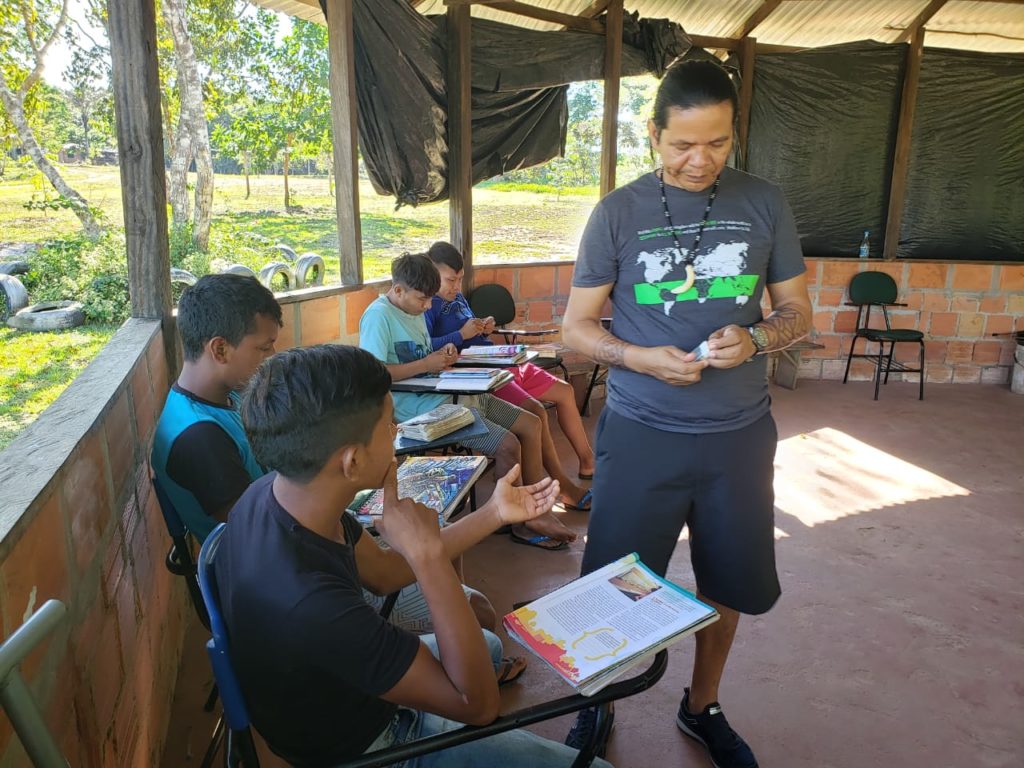
The Mission Challenge - Indigenous
Indigenous populations can be found in most parts of Brazil. They are widely dispersed and often in remote areas. Reaching these people is logistically difficult and transportation by car is necessary. Furthermore, the communities are much more open to a fellow indigenous worker than to “outsiders.” Fortunately, good progress has been made sharing the gospel in the Southern portion of Brazil. But in the Northeast, there are few workers. Ricardo would do much more field outreach in the needy Northeast, but cannot afford the transportation. Fuel is expensive here and distances are often far. Thus, Ricardo’s work is limited by lack of money to pay for transportation. Other indigenous missionaries face the same dilemma, a heart to go, or a heart to be trained, but no money. Still, the work continues as the Lord enables.
How to Support Ricardo Poquiviqui's Calling to the Indigenos
Ricardo needs money to pay for normal living expenses. He is currently located to support JUVEP, in Cabadelo, Paraiba, Brazil. This is a coastal urban area, more costly than living in the interior. Furthermore, Cabadelo is more remote from most villages requiring more fuel to pay for the car. Brazil’s roads can be challenging and can “beat up” cars. So, car maintenance is also required. Support for JUVEP is important as is getting into the mission field.
The Indigenous peoples of Brazil need to hear the good news of Jesus. Where the gospel is not known, social problems are rampant. With the hope of Jesus, things can be much better! Pray for Ricardo to be welcomed wherever he goes. Ask God to open the hearts of those with whom he shares the gospel. Pray for Ricardo, his wife Flavia and daughter Renatta. Finally, pray that God will bring the resources needed to powerfully reach the lost indigenous peoples of Brazil.
The cost of gasoline is the first impediment. These communities are often isolated and little known.. Brazil is struggling to provide basic services to these people, such as schools. Water and sanitation can be challenges too. At this point, we don’t fully understand the scope of the challenge and need to complete field surveys and make contact with tribal leaders. Then, we can consider how to scale the ministry and train up Godly indigenous servants to take the news of Jesus to where it is not known.